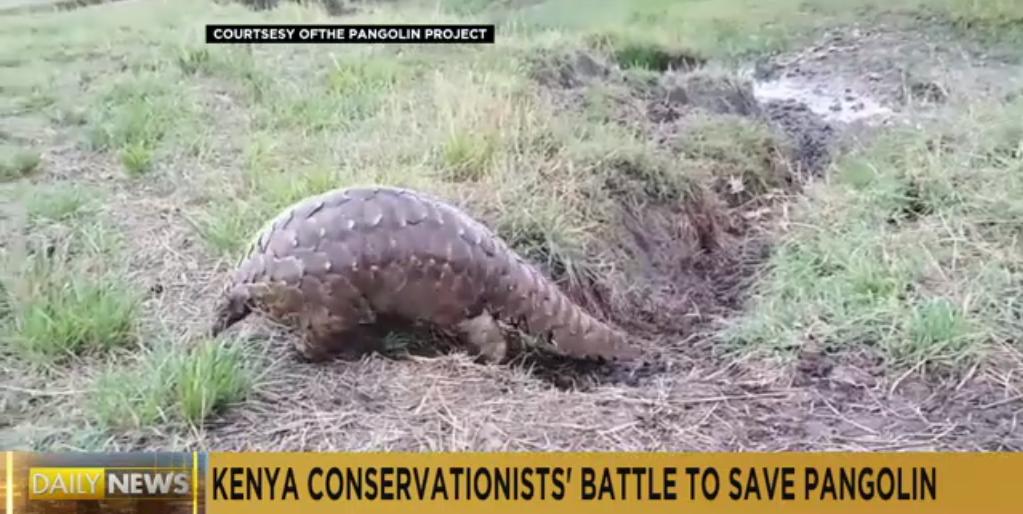Kenyan Efforts Intensify to Protect Pangolins from Extinction
Kenyan scientists and conservationists are ramping up efforts to safeguard pangolins, the elusive creatures facing the threat of extinction due to human activities and illegal trafficking.
In a bid to combat the illegal trade of pangolin scales, researchers have made significant strides. “We have been able to sacrifice one pangolin to understand how the scales lose their weight,” explains Benard Agwanda, a research scientist at the National Museums of Kenya. This knowledge allows authorities to determine the number of pangolins involved when apprehending traffickers with pangolin scales.

However, challenges persist. Joshua Omele, a pangolin monitoring expert, highlights the issue of lost tracking tags, which hampers efforts to monitor these animals effectively. “One pangolin can go up to around one month with a single tag then it disappears, and that is a great loss,” Omele laments.
Moreover, pangolins face dangers from human infrastructure, such as electric fences erected by farmers. Beryl Makori from The Pangolin Project explains, “Pangolins do not know this [electric fences], they come, they get electrocuted… continuously until they die.”
Community awareness is identified as a crucial step in pangolin conservation, according to Philemon Chebet, head warden at Kenya Wildlife Service Trans Mara Station. “We are focused on doing a lot of community awareness before we do law enforcement activities to reduce the threat to pangolins,” Chebet emphasizes.

Three pangolin species found in Kenya are listed as Critically Endangered by the International Union for the Conservation of Nature (IUCN). In response, conservationists are employing innovative methods such as tracking pangolins through their scales and collaborating with local communities to create safe habitats.
The Pangolin Project, a non-governmental organization, is working with landowners in the Nyakweri Forest to mitigate conflicts between pangolins and farmers. Through the introduction of the Habitat Lease Program and modifications to electric fences, the organization aims to ensure the safety of pangolins in the region.

Despite the challenges, the establishment of the Nyakweri Forest Conservation Trust signifies progress in pangolin conservation. Covering almost 2,020 hectares, this initiative aims to safeguard pangolin habitats.
Kenya’s dedication to pangolin protection comes to the forefront as the world commemorates World Pangolin Day on February 17th. With collective efforts and innovative strategies, Kenya strives to ensure the survival of these remarkable creatures in the African wilderness.
Additional source: AfricaNews



